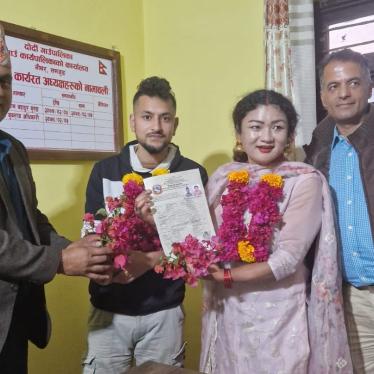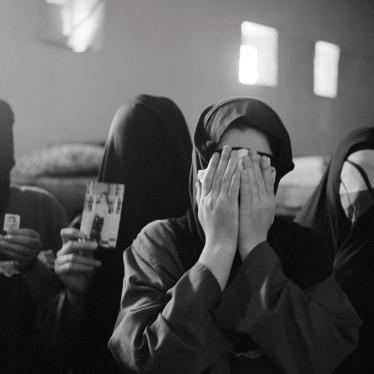October 15, 2012
Re: Marriage equality bill sponsored by MP Louisa Wall
Dear Member of the New Zealand Parliament,
On the eve of your parliamentary debates regarding whether to support marriage equality in New Zealand, I invite you to look back to a country that went through the same discussions and soul searching about 15 years ago.
In 1994, as a member of the Dutch parliament, I proposed to introduce marriage equality legislation. Years of debate ensued, in part because nowhere else in the world had such legislation been introduced.
Several of the arguments that were used in the Netherlands against same-sex marriage have also come up in your public discussions, and I think it is worthwhile sharing the Dutch experience with you.
The first argument used against my proposal was that marriage between two people of the same gender did not exist anywhere in the world and that if the Netherlands introduced same-sex marriage, the rest of the world would openly mock us. That argument cannot be used any more since 11 countries have followed suit and opened their civil marriages to same-sex couples. Several states in the United States and Mexico implemented such legislation. Also predominantly Catholic countries such as Argentina, Portugal, and Spain have since allowed such marriages.
The second argument that was often used against marriage equality was based on religious beliefs. God created Adam and Eve, the argument went, and thus only a marriage between a man and a woman could be recognized. This argument was often accompanied by doomsday scenarios. The naysayers argued that the introduction of same-sex marriage would diminish the importance of the traditional concept of marriage as between a man and a woman. It would, they argued, set in place a chain of negative consequences from the wrath of God to a moral decline that would lead the Netherlands into the abyss.
In response to that I always explained that in the Netherlands there is a separation between church and state. In the Netherlands by changing the law we were arranging a broadening of civil marriage. Freedom of religion means that religious denominations have the right to exclude same-sex couples from wedding ceremonies within their churches, synagogues, or mosques. The state however is bound by principles of non-discrimination and equal treatment, fundamental rights long-recognized in New Zealand. Needless to say the fears of moral decay and divine punishment were unfounded.
The third argument was that marriage had always been between a man and a woman because they are able to procreate and need to be married to take care of their children. According to those making this argument that was the rationale for keeping civil marriage exclusively to opposite-sex couples. In the Dutch parliamentary debates, we answered this argument by sharing the experience of opposite-sex couples who were married but did not have children, or marriages of opposite-sex couples who already had children from previous relationships. For instance, we argued, followed to its logical conclusions, this argument would make a marriage between an aged widow and widower less valid than a marriage between a man and a woman who had children during their marriage. Obviously that should not be the case. Furthermore, research in Netherlands since then has shown that same-sex couples are doing well in raising their children.
The last argument was used by several people from the lesbian, gay, bisexual and transgender (LGBT) community. “Civil marriage is an institution of a heterosexual-dominated society and we do not want to reinforce that institution. We have our own lifestyle,” went the argument. Although a minority opinion within the LGBT community, it was important to address. Of course people should choose the lifestyle that suits them best. But such an approach first requires that you have a choice. After achieving marriage equality, people from the LGBT community who are against same-sex marriage should feel free to say no to marriage, but others who would want to strengthen their relationship through legal mechanisms should have that right.
Opposite-sex couples did not turn away from civil marriage. On the contrary, over the last 10 years in the Netherlands there has been an increase in the number of civil marriages, now numbering nearly 75,000 civil marriages per year, of which, on average, there are 1,400 same-sex marriages.
Ultimately, a large majority of Dutch parliamentarians supported marriage equality. Labor Prime Minister Wim Kok, who initially was against the concept of marriage equality, changed his position and did not block the implementation of the law. Instead, he decided to support it in the 1998 coalition contract of his government, a coalition with a conservative liberal party and a progressive liberal party.
Since the first same-sex marriages in 2001, annual surveys of public opinion have been done, and they indicate that marriage equality has been accepted by a large majority of Dutch society. Essentially, it has become a non-issue. Now in the Netherlands, people are used to seeing two persons vowing to take responsibility for one another and support each other. Their gender is not considered relevant.
Even political parties that voted against the bill declined to attempt to change the law when they came into power. We’ve seen many opponents of the same-sex marriage law change their minds. One well-known example is Hannie van Leeuwen, who, as a Christian-Democratic senator at the time of the parliamentary debates, was a fierce opponent of same-sex marriage. In 2005 she publicly said: “At the time I opposed same-sex marriage, I was led by fear. Having seen so many gay and lesbian couples getting married, I realize I was wrong. I don’t understand anymore what made me treat gays and lesbians differently from other citizens.”
It is not only in the Netherlands that politicians across the political spectrum have stood up in support of same-sex marriage.
In October 2011 British Prime Minister David Cameron spoke at the Conservative Party’s conference in Manchester:
We’re consulting on legalizing gay marriage. To anyone who has reservations, I say: Yes, it’s about equality, but it’s also about something else: commitment. Conservatives believe in the ties that bind us,that society is stronger when we make vows to each other and support each other. So I don’t support gay marriage despite being a Conservative. I support gay marriage because I’m a Conservative.
Put simply, political leaders around the world are coming to realize that gays and lesbians are not a separate group with a different sexual orientation. Rather, they are our sons and daughters, our brothers and sisters, our fathers and mothers, our friends and neighbors. Gays and lesbians are integral parts of our families and our societies.
The eyes of the world are on your upcoming parliamentary debates. New Zealand is seen by the rest of the world as a country that supports the right of non-discrimination and equal treatment. Rightly New Zealand is proud of its commitments to international human rights standards and the international treaties that it has ratified, such as the International Covenant on Civil and Political Rights, the Covenant on the Rights of the Child, and the Convention on the Elimination of All Forms of Discrimination against Women, which all include protection against discrimination.
I urge you to do the right thing and vote for marriage equality and join the group of countries that have already opened their civil marriage law to people of the same gender.
If needed, I could provide you with more detailed information on this important issue and would welcome any further inquiries.
Respectfully yours,
Boris O. Dittrich
Advocacy director
Lesbian, Gay, Bisexual, and Transgender Rights Program







